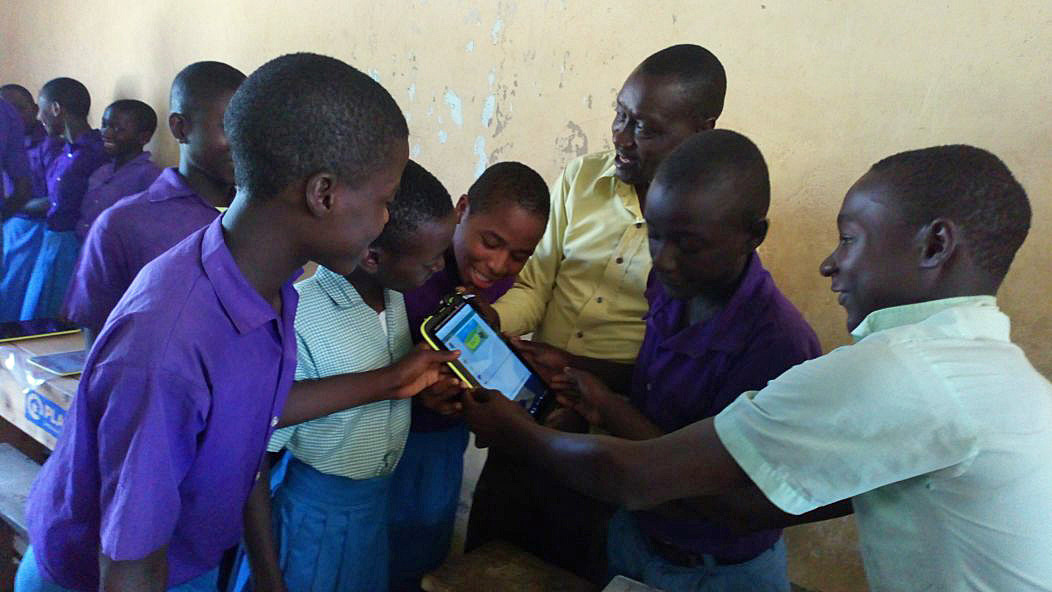Solar programme boosts educational opportunities for Kenyan schoolchildren
The educational opportunities of thousands of schoolchildren in Kenya have been transformed by energy access programme Project Jua. Funded by OVO Energy's charity arm, OVO Foundation, and implemented by Energy 4 Impact, Project Jua has extended solar energy provision to primary and secondary schools either off-grid or lacking reliable energy access, benefitting more than 86,000 students. Schoolchildren in poor rural communities typically face a digital divide, but solar-powered lighting and equipment is now helping to bridge this gap in educational prospects.
The implementation phase of Project Jua began in May 2019 after a successful pilot. It complements the government electrification programme by providing innovative and sustainable off-grid solutions that will enable Kenya to pivot away from fossil fuel consumption. Project Jua has now completed the installation of solar PV systems at 50 health clinics and 250 schools with the aim of bringing life-changing benefits to the populations of five counties with low electrification rates: Turkana, Kwale, Taita-Taveta, Kilifi and Isiolo. Teams of electricians were hired to undertake the installation of cabling infrastructure which provided a significant boost to local employment.
With the implementation phase of Project Jua completed in December 2020, a fuller picture of the impact on targeted schools is now available. Before the installation of solar systems, many schools had received technological resources from the Ministry of Education as part of the Digital Literacy Programme (DLP), but were unable to use the tablets and laptops until the provision of solar energy access. The capacity to study using tablets and laptops enables students to acquire the digital skills that are increasingly essential in the modern world. Moreover, teachers would also often have to travel to cyber cafés in nearby towns to print and photocopy documents for exams. However, the energy access provided by Project Jua allowed them to use equipment such as printers, photocopiers, typesetters, projectors and computers onsite. Not only does the availability of equipment such as projectors boost the quality of teaching, the proximity of such equipment on the school premises makes teaching more labour and time-efficient.
Aside from powering equipment, energy access has generated a range of other practical and economic benefits for schools. Electric lighting enables schools to increase study times with evening and early morning classes. Schools can also offer safer and more comfortable boarding options now that dormitories are lit. The wider village also benefits as more community events can be hosted onsite. The reduction in fuel bills creates savings that can be redirected to meet other costs such as learning resources. The schools also report higher morale amongst teachers since staff quarters have become electrified and they now have the ability to charge phones and laptops at school.
The Deputy Headteacher at Mwangani Primary School, Samuel Taura Malingi testifies to the impact of solar power:
It has shaped our school into a modern powered institution able to introduce night preps for learners resident within the vicinity of the school and that helps us compete with sister schools in the region. The ability to power equipment for typesetting, printing and photocopying has improved our operations considerably.
Healthcare is of course a vital corollary of education when it comes to ensuring the wellbeing of children in poor rural communities. By installing solar PV systems at health clinics in weak- or off-grid regions, Project Jua has also enabled the usage of equipment such as centrifuges, oxygen machines, microscopes and fridges for storing vaccines. The improvement in treatment outcomes demonstrates the indispensability of energy access to modern healthcare.
Caroline Silke, Head of OVO Foundation, said:
Despite this year’s challenges, we are delighted that our partnership with Energy 4 Impact has enabled clean and affordable energy across a further 300 schools and health clinics. Project Jua is more relevant and necessary than ever. As well as environmental benefits, the additional study time during hours of darkness and improved resources will help children and young people returning to education after a disruptive period of schools being closed. A greater range of health equipment will also create a safer environment for hard-to-reach rural communities. We are thrilled that 300,000 people will benefit from the project over the next three years, whilst helping to progress three of the Sustainable Development Goals, and supporting the Kenyan government’s national electrification project.
Project Jua is now entering a long-term sustainability phase until 2023 to ensure such life-changing education and health benefits persist into the future. Access to clean energy should therefore have a lasting impact on the lives of young people in some of the poorest communities in Kenya.

